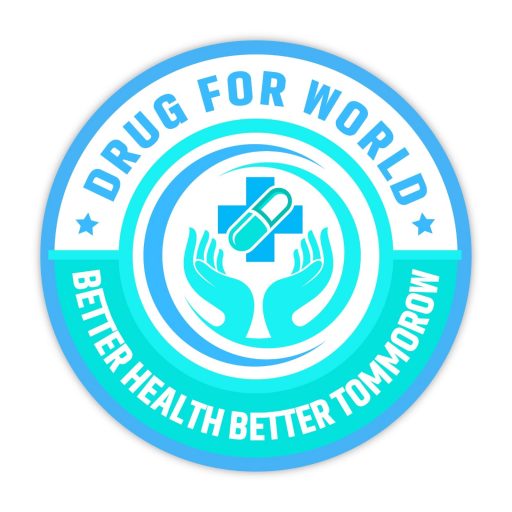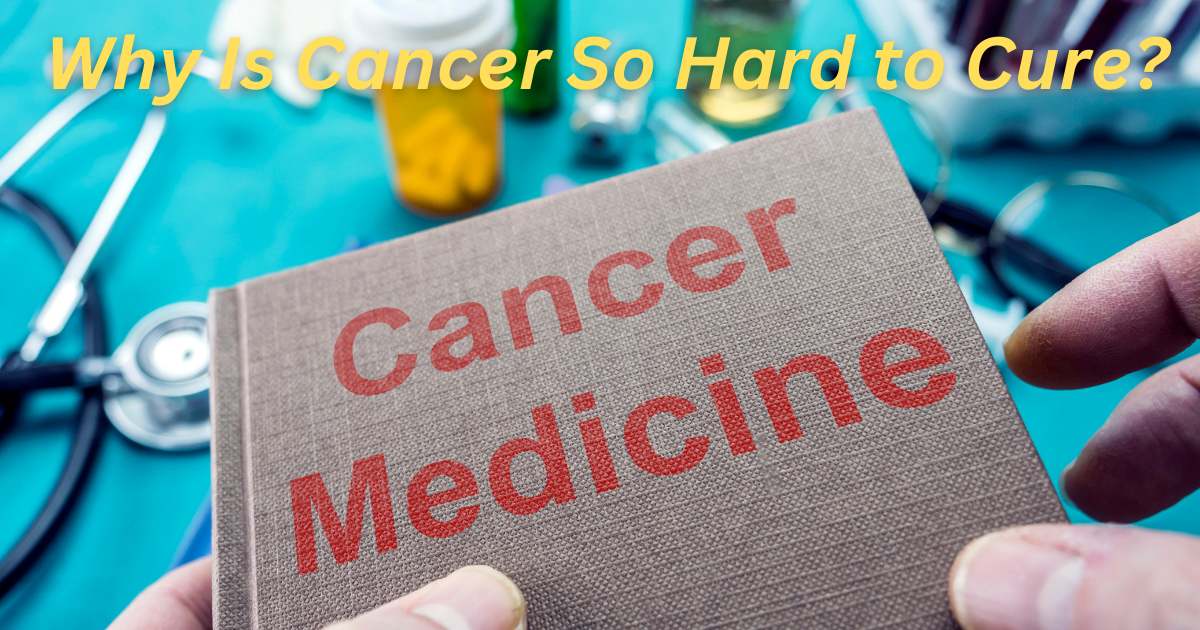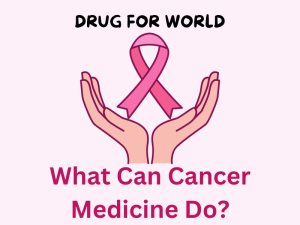Cancer is one of the most challenging medical conditions in the world, affecting millions of lives each year. Why Is Cancer So Hard to Cure, Despite advancements in technology, medicine, and research, curing cancer remains elusive. This article explores the complexities of cancer, the obstacles faced in its treatment, and the promising advancements that give hope for the future.
What Is Cancer?
A class of disorders known as cancer is defined by the unchecked development and dissemination of aberrant cells. These cells have the ability to infiltrate adjacent tissues and potentially spread (metastasize) to other sections of the body. The complexity of cancer arises from the wide variety of cancer types, each with its unique behavior and challenges.
Why Is Cancer So Hard to Cure?
- Cancer’s Diversity
Cancer is not a single disease; it includes more than 200 types, each with distinct genetic and molecular characteristics. For example:
- Breast cancer behaves differently from lung cancer or skin cancer.
- Even within a single type, there are subtypes that respond differently to treatments.
-
Genetic Mutations and Evolution
Cancer develops through genetic mutations that cause normal cells to grow uncontrollably. These mutations:
- Even within the same cancer type, patients can differ from one another.
- Enable cancer cells to evolve and adapt to treatments, leading to resistance.
-
Ability to Evade the Immune System
Cancer cells are skilled at evading the body’s natural defenses. They can:
- Suppress immune responses.
- Mimic normal cells, making it difficult for the immune system to identify and attack them.
-
Treatment Resistance
One of the most significant obstacles is treatment resistance.Cancer cells can:
- Adapt to chemotherapy and radiation, rendering these treatments ineffective over time.
- Survive initial treatment and regenerate, leading to relapse.
-
Challenges of Metastasis
Metastasis occurs when cancer spreads to other parts of the body, making treatment significantly more difficult. Once cancer metastasizes, systemic treatments like chemotherapy are required, but these are less effective than localized therapies.
-
Tumor Microenvironment
The environment surrounding a tumor, including blood vessels and immune cells, plays a crucial role in cancer progression. For example:
- Poor blood flow can prevent treatments like chemotherapy from reaching the tumor.
- Immune cells in the tumor microenvironment may actually help cancer grow rather than fight it.
Current Advances in Cancer Treatment
-
Targeted Therapy
Targeted therapies attack specific molecules involved in cancer growth, minimizing damage to healthy cells. Examples include:
- HER2 inhibitors for specific breast cancer types.
- -EGFR inhibitors for lung cancer.
-
Immunotherapy
Immunotherapy enhances the body’s immune system to fight cancer. Popular techniques include:
- Checkpoint inhibitors, which unblock immune cells to attack cancer.
- A procedure known as CAR-T cell therapy involves modifying a patient’s immune system to specifically target cancer.
-
Personalized Medicine
Advancements in genetic testing enable personalized treatments tailored to an individual’s cancer profile. This approach:
- Identifies the specific mutations driving the cancer.
- Matches the patient with the most effective therapies.
-
Early Detection and Screening
Early detection is key to improving survival rates. New techniques, such as liquid biopsies and advanced imaging, are helping identify cancer at treatable stages.
Benefits of Combining Treatment Modalities
- Combining therapies offers better outcomes for many patients. For example:
- Using chemotherapy alongside targeted therapy can reduce the chances of resistance.
- Combining radiation with immunotherapy enhances the immune system’s ability to attack cancer cells.
FAQs About Cancer and Its Cure
- Can Cancer Be Cured?
With the right care, certain malignancies, such as testicular or early-stage skin cancer, can be cured. However, many advanced cancers remain difficult to treat due to their complexity and resistance.
- Why Can’t We Find a Universal Cure?
Cancer’s diversity, adaptability, and the unique genetic profile of each patient make a universal cure unlikely. Researchers focus on developing targeted and personalized treatments instead.
-
What Is the Future of Cancer Treatment?
The future of cancer treatment lies in:
- Gene editing technologies like CRISPR.
- Advanced AI-driven drug discovery.
- Enhanced preventive measures through vaccines and screenings.
Internal Links
- [How Does Immunotherapy Operate and What Is It?]
- [Top 5 Advances in Early Cancer Detection]
- [Understanding Genetic Mutations in Cancer]
External Links
- [National Cancer Institute](https://www.cancer.gov)
- [World Health Organization – Cancer](https://www.who.int/health-topics/cancer)
Conclusion
Cancer is an extraordinarily complex disease, making it difficult to cure. However, advancements in targeted therapy, immunotherapy, and personalized medicine provide hope. With continued research, early detection, and innovative treatments, the battle against cancer becomes more promising. Supporting cancer research and spreading awareness remain crucial steps in this fight.




